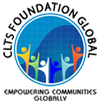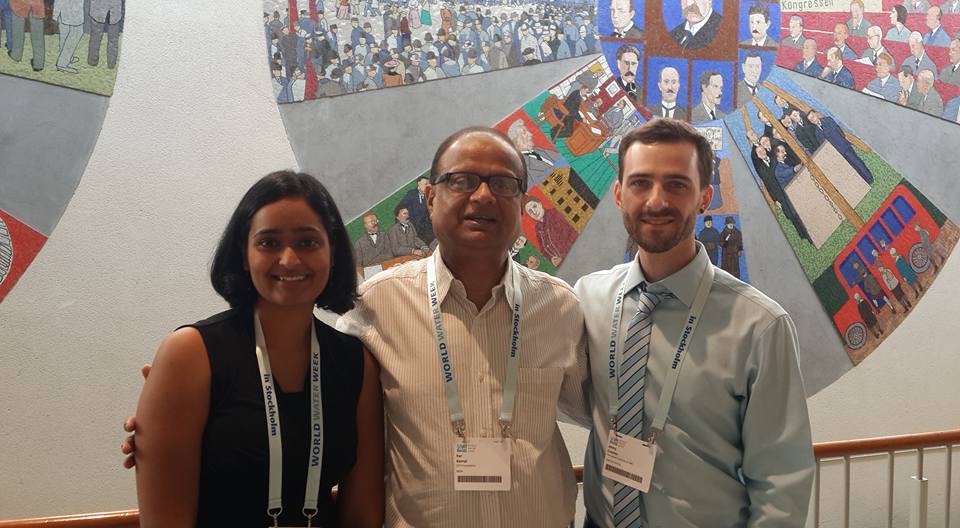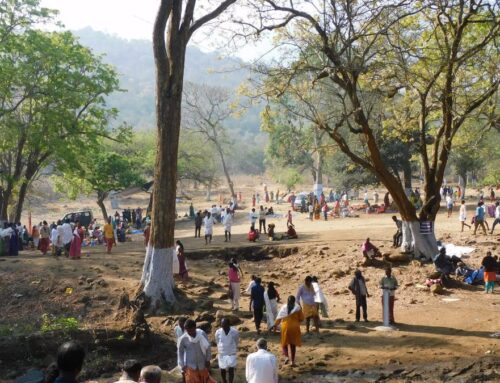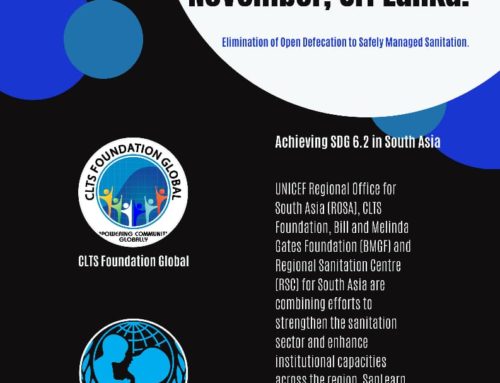This year’s World Water Week (WWW) at Stockholm provided another great opportunity for the CLTS Foundation Global to meet champions of the CLTS approach and senior development professionals from all over the globe.There were two dedicated sessions on CLTS during this annual event.

On August 23, the Water Institute at UNC and Plan International held a seminar on “Scaling Up Community-Led Total Sanitation by Working with Local Actors”, where speakers from Plan International and the Water Institute at UNC discussed the results of an operational research program on the role and potential of local actors to sustain CLTS outcomes. On the same day, the Water Supply and Sanitation Collaborative Council (WSSCC) organized a learning and sharing event on GSF learning journeys in Africa with a special focus on Madagascar, Benin and Togo. The CLTS Foundation Global has given technical and handholding support to GSF programmes in Madagascar and Benin.

Dr Kamal Kar with Maria Notley,Water Adviser,Ministry for Foreign Affairs of Finland (middle)
At present Madagascar has nearly 15,000 ODF villages and communities across the country have come up with 65 triggering tools through participatory methods. One of the most powerful innovations that has worked well in the country is ‘Institutional triggering’. Dr Kamal Kar demonstrated this approach by motivating key and influential players in Madagascar to take action within their scope of influence – whether it is at the country level, or within the region, district, parish or community.Institutional triggering is a methodology that has been developed and used by the CLTS Foundation Global in a number of contexts, and at various different levels to bring about institutional change for improved coordination and greater speed of implementation of CLTS.
Benin was grappling with subsidies when the GSF programme was launched in the country. Although CLTS was introduced in 2009, till early 2014, Benin did not have a single ODF village, but after Dr Kamal Kar’s training in 2014, they saw tremendous results.

Dr Kamal Kar with CLTS champion Achille Kangni from the Ministry of Health, Benin
On the sidelines of WWW 2015 on August 25, Dr Kamal Kar was invited to speak at an event hosted by WSSCC and Global Poverty Project on ‘Financing SDG Goal 6.2 for Progress and Sustainable Development: Investing in Sanitation and Hygiene to Save Lives, Improve Health and Promote Education for Millions of People in Sub-Saharan Africa, South Asia and Southeast Asia’ at the Radisson Blu Waterfront Hotel.
Date: September 1, 2015





Leave A Comment